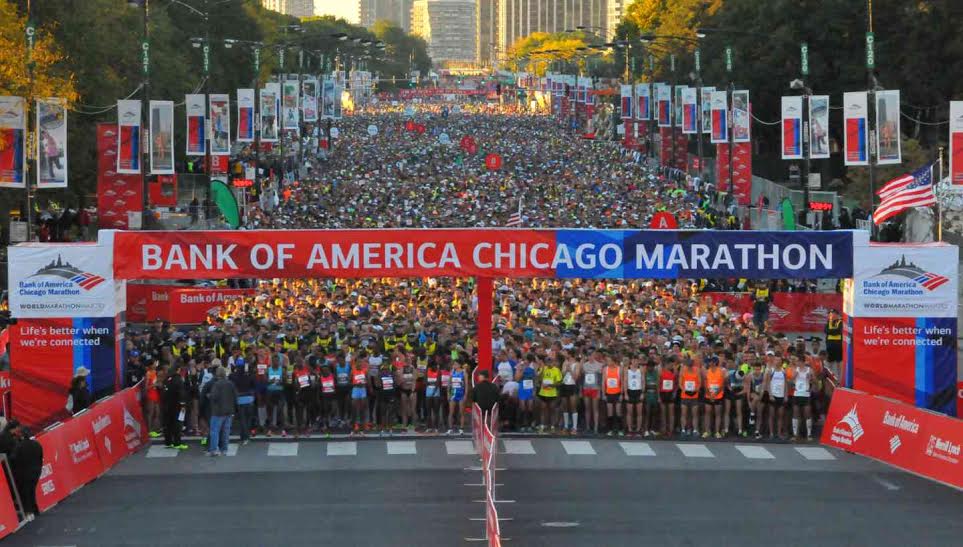Be sure that you are ready to train for a marathon before marathon-specific phase begins. This is the precursor to my 12-part series that will coach you through marathon training, week by week.
These guidelines will work for the majority of runners, although runners at the extreme ends of the spectrum will need to modify.
A marathon-specific training block is typically 12-16 weeks before your race. First-timers and less experienced runners will need more time while seasoned runners will need less.
Mileage and Frequency
Before you start planning your specific training, you’re going to need to be ready to train for a marathon. Now, of course, we’ve all heard of those people that decide to run a marathon straight off the couch. That’s not the kind of training I’m talking about, nor do I recommend that!
In my experience coaching hundreds of every day runners, what I’ve seen that works best is that you are regularly running at least 30 miles or 48 kilometers a week for several weeks when you are about 3-4 months away from your race.
It’s also ideal to be running 4-6 days a week. Yes, you can get away with running just 3 days a week, especially if you cross train on other days, but again, I’m going to focus on optimal training that works for the vast majority of marathoners.
Getting up to this kind of mileage and frequency of runs takes time. New runners should plan to get to this point over the course of 6 months to a year, if not more. This allows the bones, tendons, and ligaments to adapt to the pounding of regular running.
If you are aerobically fit from another sport like cycling, your lungs will likely be well-developed. But that doesn’t mean that your legs are durable enough to withstand the unique forces of running right away.

Types of Weekly Runs
If you are running 4 days a week, here’s the general layout:
- one day is your long run,
- one day is easy with strides,
- one day is speed, and
- the 4th day is either another easy day or could be a medium-paced steady run the day before your long run on alternating weeks.
If you are running 5 days a week, your extra day is either another easy run or you can try 2 speed days a week. One of those speed days should be an interval or track-style workout and the second speed day is a stamina or tempo run.
And for those running 6 days a week, you’ll be adding in one more easy run.
I don’t recommend running 7 days a week in marathon training unless you are very advanced, very strong, and very injury proof. It usually causes more harm than good because a rest day is critical to building and repair.
Length of Your Long Run
By the time that you are 13 or 14 weeks out from race day, your long run should be about 12-14 miles or 19-22 kilometers. You should be able to complete this fairly comfortably at a gentle, relaxed pace.
I like to toggle between easier long runs and harder combo long runs every other week. This allows you to keep your mileage strong, but also give you an extra challenge every other week. To make things easy to remember, even weeks are easier, odd weeks are harder.
Schedule A Tune Up Race
Now is a great time to schedule a tune up race, if you want to. This is completely optional, but it is great race practice that can build your confidence and experience at racing.
Racing a half or even a 10k right at the start of your marathon cycle will tell you where your fitness is right now. This will help set your paces so that you begin training at your current fitness level, not at your dream goal pace. Remember, you’ve always got to train where you are to get where you want to be. It doesn’t work any other way.
If you don’t want to race a tune up or if you simply can’t find one that fits this time frame, that’s okay too. You’ll have to use another way to estimate your current fitness so you can be sure that your training paces suit you.
A coach can help you with this or you can estimate your fitness from a time trial and/or an online calculator.

Start Dialing in Your Nutrition to Get Ready to Train for a Marathon
Proper nutrition and fueling can make or break your race. It’s not easy to eat while running fast, so you need to practice throughout your training cycle, especially on long runs. Now is the time to start to experiment with gels, sports drinks, chews and other kinds of fuel to see what sits best in your stomach. Just like your legs, the stomach can be trained, but it takes lots of practice.
What you eat before and after your runs is just as important. Running on empty sabatoges your performance and makes recovery even more difficult for your system. Not fueling well after your runs extends the recovery process and increases the liklihood of debiliating soreness.
Getting into good habits with your nutrition now helps set you up for a much smoother marathon build. You don’t have to be perfect with your diet, but underfueling is a quick way to derail your good training.
Strength, Drills, Mobility, Sleep and More
Training for a marathon is not just about running. To support the incredible feat you are about to accomplish, you need to take care of your body. You’ll need to build strength and power, learn to move well through your range of motion, and get enough recovery and sleep. You’ll also want to train your mind each week to handle the negative thoughts that will arise when running and training hard.
If this all seems overwhelming, you’re completely normal! Getting ready to train for a marathon is a big challenge with a lot of moving pieces and that’s even before specific training starts. My best advice is to take it one day at a time, then one week at a time.
As I often say, there’s nothing better than doing something hard well. You can do this!
Next week, I’ll start the week by week marathon coaching series with Week 12.

